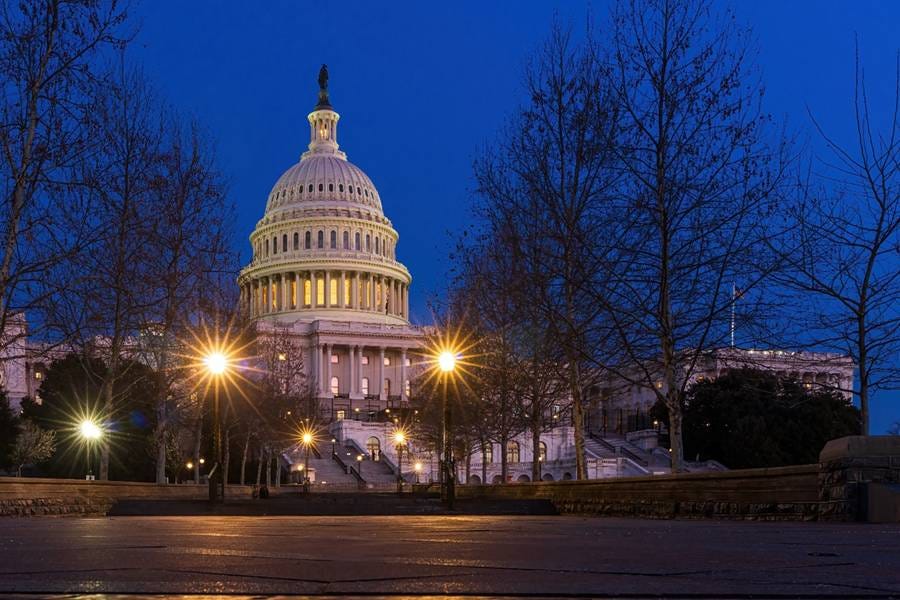Cattle Chute
A Funneling Process, Like the Electoral Methods for Congress
Motivations
What motivates a member of Congress to work on one topic or another? And what is the motivation to vote yes or no?
Members running for reelection have around a 90% probability of retaining their seats, so their voting records don’t sway as many voters as is commonly thought.
The winner for every seat is almost guaranteed to be from one of the duopoly, so members are motivated to belong to one of those two parties and to avoid angering party leaders. These leaders can and do discipline members by “primarying”, that is by backing a strong substitute for the party’s position in that primary. Primary elections are the primary (pun intended) cattle chute to a seat in Congress!
Members are motivated by careerism, by getting reelected time and time again. Why? Depending on the individual, by the power, prestige, status, perks, and money.
Party unity and the resultant higher likelihood that one’s party will be in the driver’s seat in a chamber – or perhaps both chambers – is a motivation because the result is usually being able to craft more rewarding legislation.
The hostility of the other party I suspect is also a motivation for actions and votes some members cast, sad as this may be.
Oh, I failed to mention solving our country’s big problems as a motivation – mostly because it seems to take a back seat to the reasons cited above. Solving big problems often has a downside, offending some citizens while pleasing some. Also, it is hard work. And perhaps more importantly, the bills that to get passed are very often those that purchase votes – with our children’s and grandchildren’s money. Debt!
Let’s use the federal debt crisis as an example, the topic of my Substack Posts from May through August 1. The federal debt has grown for about 45 years, accelerating in 2000, and shooting upward since 2008. It has now reached what many economists believe is a perilous level.
Worse is that Congress doesn’t seem to care. Even now with the storm flags flying in 2025, seeing the numbers below, the deficit of almost $2 trillion is increasing the federal debt owed to the public by over 6% in one year. The real tragedy, and the point of this example, is that Congress passed a huge bill this year that will add to the current deficit an amount estimated to be nearly $4 trillion over the next ten years or an average of about $ 400 billion per year – when instead it should have been solving this big debt problem! What motivated this action? Look in the paragraphs above for answers.
2025 Federal Government, Dollars
5,163,000,000,000 Revenues
7,028,000,000,000 Outlays, including $952,000,000,000 in interest on the debt!
1,865,000,000,000 Deficit
Barriers to Competition
The previous post of August 28 discussed the absence of competition to the duopoly in Congress. This virtually ensures that one or the other of our two parties will control each chamber – leading to little or no collaboration and compromise.
See below for members of Congress elected from other than one of the two key parties. It is from ChatGPT; while it is too early for me to fully trust AI, I believe the information is about right. The point is that it is obvious that there are barriers to entry into Congress for other than the duopoly.
Since the late 20th century, independent or third-party House members have been rare, but notable:
· Bernie Sanders (Vermont, elected as Independent; 1991–2007)
· William Carney (elected as Conservative, later sat with Republicans)
Obviously, longevity, name recognition, money-raising capabilities, and party loyalty by our Parties A & B provide some barriers to new competition. However, citizens are so frustrated with the partisanship, animosity, and neglecting of major problems that with fair election methods, they would happily elect competition. See my August 28 post for examples of how a little success by third parties can go a long way in improving the temperament in Congress.
Future posts will deal in much more detail with the barriers to competition imposed by the duopoly.
Who is In Charge? Must We Continue Succumbing?
Congress is Vital! It is the only entity in our country that has the power – and therefore the duty – from the constitution to perform many vital tasks like tax, borrow, impose tariffs, declare war, provide and maintain a navy, and many more. This is the reason dereliction of important duties is so damaging, frustrating, and wasteful.
I reiterate that there are members of Congress who truly strive to do what is best for our country. They just do not have the numbers nor the power to get the big problems solved – to buck the system.
The constitution begins with “We the People of the United States…do ordain and establish this Constitution for the United States of America.” That means we citizens are in charge. We elect and pay people to perform their duty. The election systems must be fair so that can happen.




Tom, Thank you for your lucid assessment of the situation. I wholeheartedly agree. Where I am struggling, where I have been struggling for over a year, is in how to solve the problem you describe, in a realistic, workable, actionable manner. By nature, I must believe it is possible, but the "how" question, phrased in concrete terms, is formidable. For readers' benefit, let me illustrate with something that you and I have discussed at some length: a large, highly visible public protest against the huge deficit spending you describe, taking something like the 1963 March on Washington as an example. That had a huge tangible impact. But every person we raised that with, from among our own friends and colleagues, promptly rejected it as a pipedream. There are several movements out there for constitutional change, but they've been out there for a long time with no tangible effect, and our rising debt is moving much faster than any constitutional change possibly could. The current Congress and the current President obviously have zero appetite for uncomfortable spending cuts or revenue increases. The two parties are adamantly opposed, and their powers are formidable. I'd like to see all of us who broadly agree on the needed direction of change concentrate on this terribly challenging "how" question, not with hopes and aspirations, but with actionable plans for changing the balance and the dynamic in Washington. Best, Owen